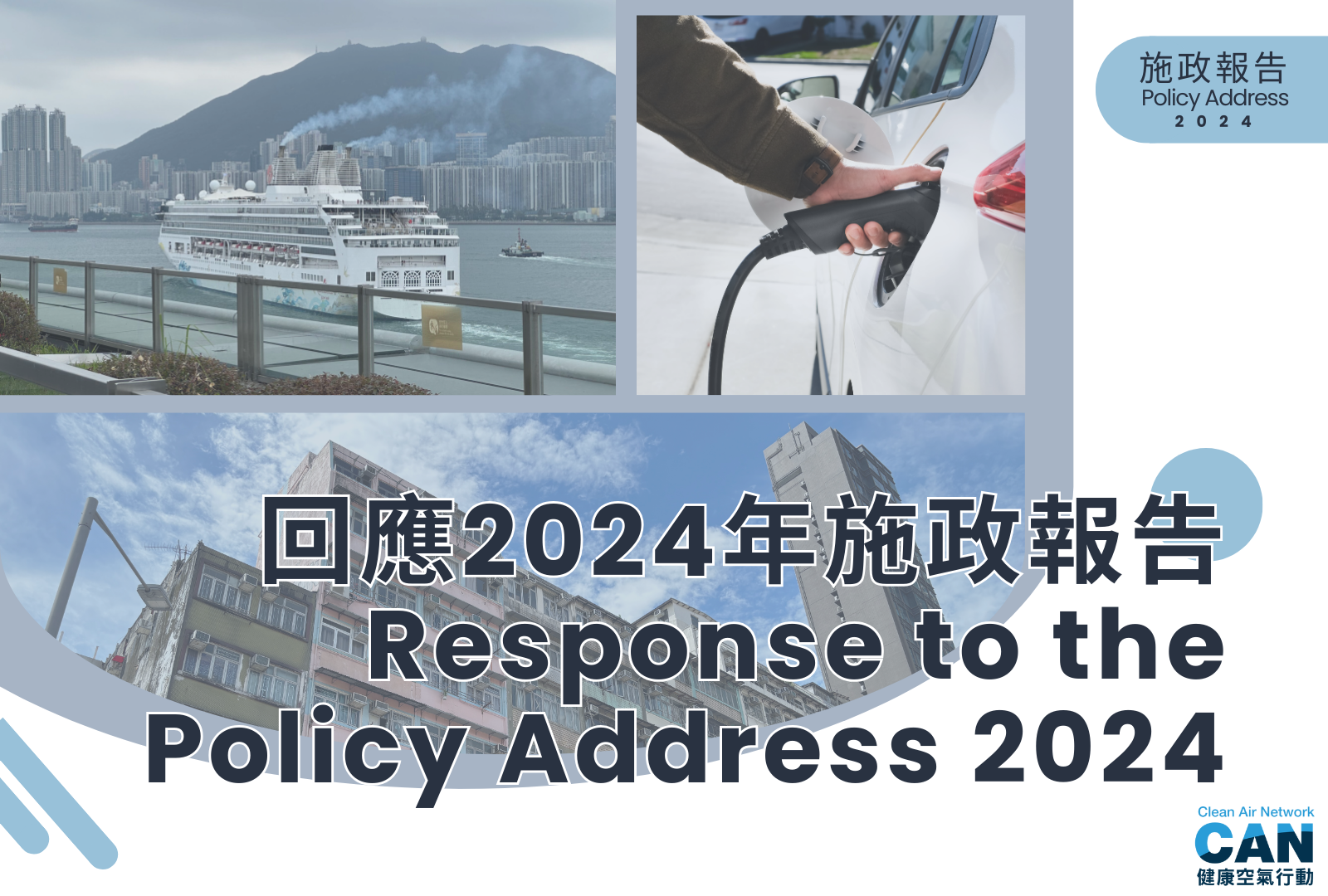
Response to the Policy Address 2024
Clean Air Network welcomes the policies announced in the Chief Executive’s Policy Address today which help to improve air quality, namely the provision of more electric vehicle charging stations, the development of Hong Kong into a green maritime centre, the promotion of green energy and the promotion of green finance.
Over the past decade, Hong Kong has made significant progress in enhancing ambient and roadside air quality. However, it is imperative that we continue to strengthen policy on clean air, to enhance the health of the population and reduce healthcare costs. It will also contribute to an inclusive and caring society under the focus “Improve People’s Livelihood in Pursuit of Happiness” of the Policy Address, as the elderly, children, chronic patients and people with low income are more adversely impacted by poor air quality.
On Green Energy, we welcome the Government’s suggestion to earmark budget (HK$750 million) under the New Energy Transport Fund to subsidise the taxi trade and franchised bus companies to purchase electric vehicles, and launch the Subsidy Scheme for Trials of Hydrogen Fuel Cell Electric Heavy Vehicles.
It is important for the Government to publish a holistic citywide green transformation roadmap by the end of this year. The plan should cover the development of infrastructure, operation and financial support in the long term in order for various trades and operators to plan ahead.
On Collaboration in the Greater Bay Area, to ensure a green and healthy environment, we encourage the HKSAR and Guangdong Governments to release the study “Characterization of photochemical ozone formation, regional and super-regional transportation in the Greater Bay Area”, and release a roadmap and action plans to control ozone pollution, which surged to a 20-year record high in 2023.
On Air Quality Objectives, we recommend the Government tighten the target for each pollutant by at least one level in the current and each coming review under the Air Pollution Control Ordinance.
On Inadequate Housing, people with low income are more vulnerable to the impact of poor air quality. We welcome the proposed introduction of minimum living condition standards and recommend that the Government include indoor air quality in the detailed standards to be announced.
On Indoor Air Quality, monitoring and improving IAQ indoor air quality (IAQ) would protect the physical and mental health and cognitive ability of the public, in particular children. However, the relevant law and policy on IAQ are much weaker compared with those on ambient and roadside air; for example, unlike for ambient and roadside air, there are no statutory air quality objectives for indoor air. We recommend the Government formulate a roadmap on IAQ and IAQ objectives for non-domestic spaces.
Please find our full recommendations in our submissions in response to the consultation on the Policy Address 2024 and that of the Task Force on Tackling the Issue of Subdivided Units at the respective pages linked above.

